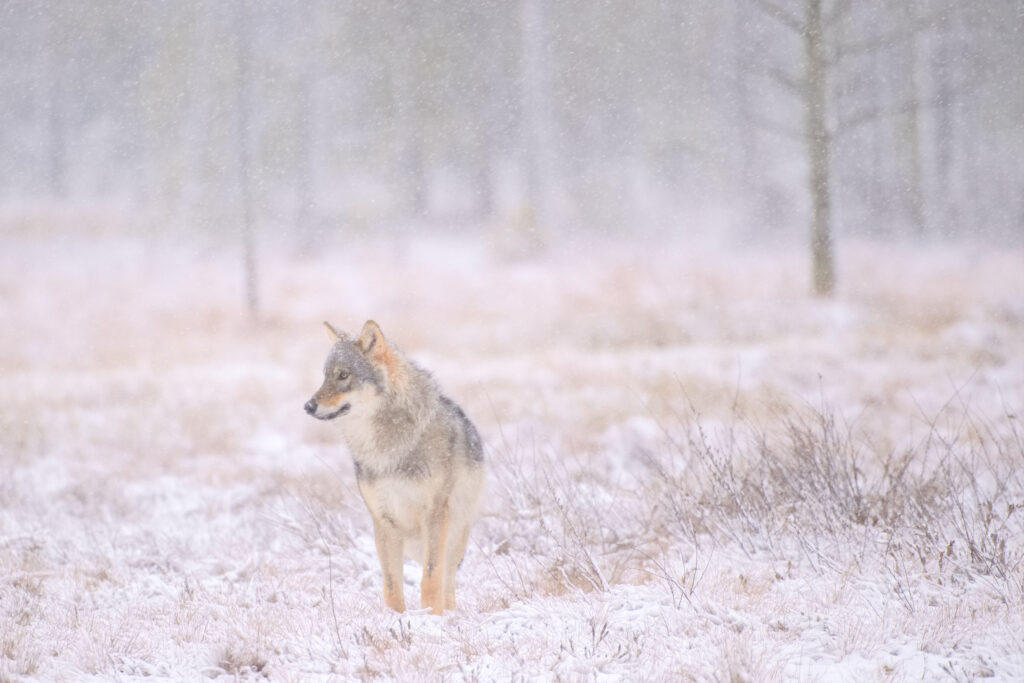The European Commission has proposed to lower the wolf’s protection status. The European Environmental Bureau (which is Europe’s largest network of environmental organizations bringing together over 180 member groups from 40 countries) has issued a joint letter with over 300 signatures, including the Swedish Carnivore Association, to protest against this proposal to downgrade the wolf’s protection status.
In December 2023, the European Commission published a proposal recommending a downgrading of the wolf’s protection status, from “Strictly protected” to “Protected” under the Bern Convention. If the status of the wolf is changed in the Bern Convention, it will make it possible to also change the wolf’s status in the Species and Habitats Directive. This goes against Europe’s commitment to protect and restore biodiversity, as promised in the EU Biodiversity Strategy.
In the open letter, the EEB (180 member groups) points out that the reason for the wolf’s remarkable recovery, from once being driven to the brink of extinction in Europe, is due to concerted conservation efforts. However, this has caused some conflicts with hunters and farmers, with a number of cases where wolves have attacked livestock. This can partly be explained by the fact that when the wolf has returned to parts of Europe after decades, the human’s knowledge and methods of coexistence have been lost.
Not scientifically motivated proposal
Sergiy Moroz, Head of Biodiversity and Water Policy at the EEB, has argued that the recommendation to change the wolf’s conservation status is politically motivated, saying that the proposal ”is an early Christmas present for the von der Leyen political family, which is trying to position itself as a defender of agriculture and rural communities ahead of the European Parliament elections. The proposal is neither scientifically justified nor supported by public opinion. The EU can achieve peaceful co-existence with wolves by making full use of funding, best practices, and other technical solutions available to protect livestock.”
Critics of the recommendation argue that the EU already has the tools and guidelines necessary to manage the conflicts that arise from the co-existence of wolves and human activities. These include guidelines for state aid in the agricultural sector, which allow member states to compensate farmers for damage caused by wolves, and rural development funds that could support coexistence efforts.
Joint letter
EEB also points to a recent poll showing that most rural residents support the protection of wolves and other large predators, with 68% saying they should be strictly protected and 72% agreeing they have a right to co-exist. The organization has also received financial support from the European Restoration Fund, which works with financial assistance for projects aimed at restoring ecosystems. It is now up to the Member States to decide on this proposal. Once the proposal is adopted, it will be submitted by the EU to the Standing Committee of the Bern Convention.
Links
